On 15 January 2020, the VCDNP held a public panel entitled "Building Bridges and Facilitating Consensus for a Successful International Conference on Nuclear Security 2020". The event was moderated by VCDNP Executive Director Elena Sokova and featured four prominent speakers: Director General of the International Atomic Energy Agency (IAEA) Rafael Mariano Grossi, Ambassador Cristian Istrate (Romania), Ambassador Omar Amer Youssef (Egypt) and Ambassador (ret.) Laura Holgate (Nuclear Threat Initiative). The panelists discussed several key issues still to be finalized before the conference, including the ministerial declaration, their expectations of the overall outcome of the conference and the future direction of nuclear security efforts.
In his opening remarks, Director General Grossi underlined that the Agency would continue and increase its efforts in nuclear security and ensure that Member States’ political commitments are implemented. He emphasized the core role of the IAEA in coordinating international nuclear security efforts and providing Member States with support in the form of training, legal assistance, equipment donation, and advisory services. Upon request from Member States, the Agency also provides nuclear security advice and experts to high-level public events, such as, for example, Football World Cups or World Youth Day.
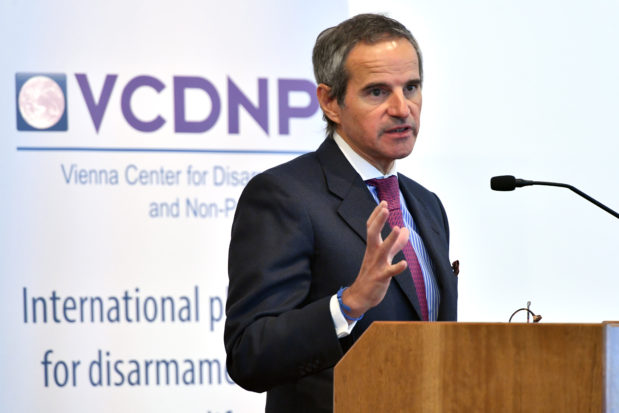
Mr. Grossi identified the need to strengthen normative side of nuclear security and make it more mature to bring it to the same level as the normative foundations for nuclear safety. Another important issue is the financing of the IAEA’s nuclear security activities. While commending wide-spread commitment of Member States, Mr. Grossi emphasized that nuclear security is too important an issue to be overdependent on extra-budgetary funds and called for greater consistency and sustainability of financial support towards nuclear security.
Mr. Grossi concluded that it is better not to wait for an accident or a crisis in order to be able to act. The IAEA remains at the centre of international nuclear security efforts, and the upcoming Conference is a place to render important political support to both the Agency’s work and the nuclear security itself. In this context, high-level attendance by Member States is extremely important. More information on the remarks delivered by Mr. Grossi is available here.
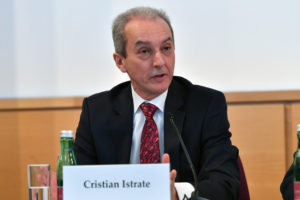
Ambassador Cristian Istrate, Co-chair of the Conference, spoke on the Conference preparatory process. He noted that ICONS co-chairs strived to guarantee transparency and sense of ownership by all Member States. The process, after numerous consultations and negotiations, translated into a “solid” draft Ministerial Declaration. Ambassador Istrate also mentioned an important role of bridge-building and consensus-making between informal groups of Member States in this process. The Ministerial Declaration is dependent on Member States’ willingness to “walk an extra mile to achieve consensus,” find a compromise, and thus help strengthen nuclear security worldwide and enable the IAEA in that issue-area.
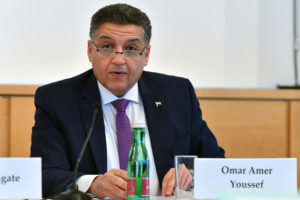
Ambassador Omar Amer Youssef, Co-chair of the Programme Committee of the Conference, concurred with other speakers that the International Conference on Nuclear Security 2020 is a valuable platform for States to take stock of nuclear security and define a direction for future efforts. He identified a number of challenges that lie ahead of the Conference. He stated that, while supporting the importance of nuclear security and its strengthening, States should strive to strike a balance between nuclear security and access to nuclear technology for peaceful uses.
There also exists a gap in capacity among States in the nuclear security domain. Ambassador Youssef therefore underlined the need for broadened IAEA assistance in the form of training and awareness raising and called for better communication and information about various IAEA assessment services. He also suggested that there is room for optimisation of resources and streamlining of guidance and other technical documents development within the IAEA. In addition, Ambassador Youssef shared the view that nuclear disarmament and nuclear security are inextricably interlinked. In that regard, he underlined the need for a holistic approach to nuclear security by States.
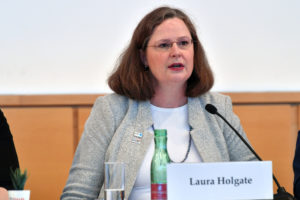
Ambassador Holgate welcomed considerable progress in nuclear security in the last decades as more countries adopted new laws and regulations or updated existing ones, improved their record of adherence to international conventions and other norms, better utilised services provided by the IAEA, and enhanced involvement in international cooperation. The NTI Nuclear Security Index, however, demonstrates the need to strengthen the global nuclear security architecture and to continuously improve relevant national programmes. The challenges for nuclear security stem from a number of factors, such as, for example, increasing stocks of nuclear material and number of facilities. Modern technologies, e.g., IT, can also pose threats but, if used appropriately, can contribute to the enhancement of nuclear security, too.
The ministerial segment of the Conference is an opportunity to gain support for nuclear security, share individual countries’ achievements and even make joint commitments. The Conference can also be used to send a signal to the public about the IAEA’s work and assistance it can provide.
Moreover, the Conference can set a scene for the 2021 Review Conference of the Amended Convention on the Physical Protection of Nuclear Material. According to Ambassador Holgate, the 2021 Review Conference is an opportunity to engage in a substantive dialogue on nuclear security, including lessons learned, best practices and ideas for continuous improvement. She added that regular review conferences would be vital for building a more sustainable regime that can evolve along with the evolution of technology and best practices.
Ambassador Holgate also suggested the Agency raise visibility of its work to reinforce the importance of nuclear security for sustaining access to peaceful nuclear technologies. Other suggestions included ensuring a one-house approach to nuclear security within the Agency, developing strategic plan for the Division of Nuclear Security and taking a creative approach to financing nuclear security, including through such non-traditional sources, for example, as non-governmental organisations, industry and private actors.
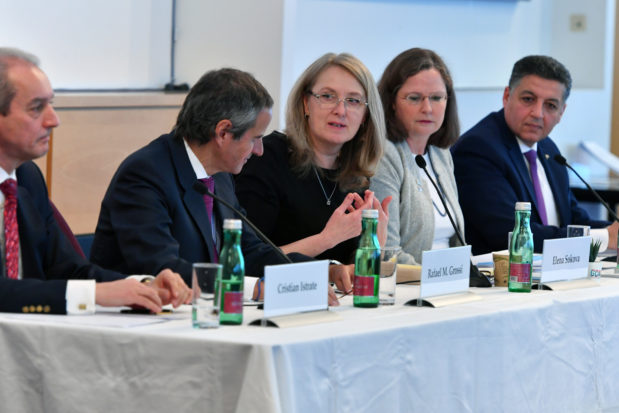
During the discussion, Ms. Sokova provided a brief overview of various VCDNP capacity-building and outreach activities related to nuclear security, such as a nuclear security professional development course and a project exploring a nexus between nuclear security and peaceful uses of nuclear technologies.
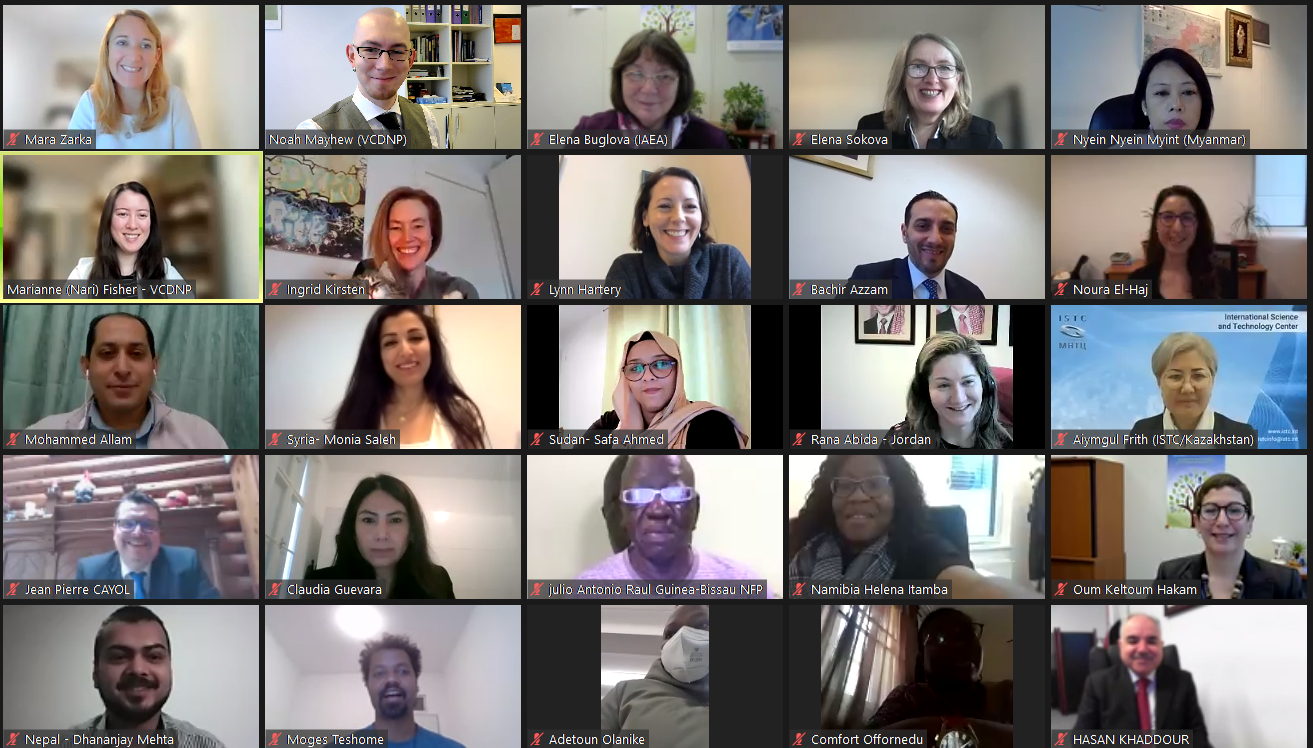
By continuing to use the site, you agree to the use of cookies. more information
The cookie settings on this website are set to "allow cookies" to give you the best browsing experience possible. If you continue to use this website without changing your cookie settings or you click "Accept" below then you are consenting to this.